Dear supporters
- MS Brain Health quality improvement tool – pilot study update
- Lifestyle guidance for people with MS – our impact
- Webinar for people with MS – now available on demand
- Should people with MS take supplementary vitamin D?
- Social determinants of health – impact on MS outcomes
MS Brain Health quality improvement tool – pilot study update
During the 8th Joint ACTRIMS–ECTRIMS Meeting last September (MSVirtual2020), Professor Jeremy Hobart described the development of an MS Brain Health quality improvement (QI) tool to help MS centres implement the global consensus standards for timely MS care.
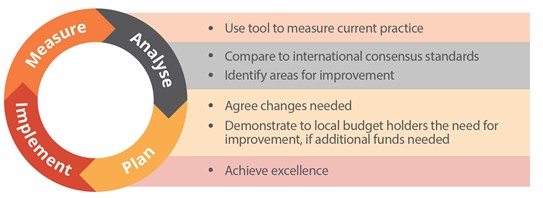
Almost 20 MS centres in different countries and healthcare settings recently participated in a global pilot of a modified prototype of the tool. Study sites were asked to complete a survey following their service evaluation, to provide feedback on ease of use and relevance of the tool, as well as next steps for its refinement.
Professor Hobart will present a summary of these survey findings at the forthcoming ECTRIMS online conference. Look out for our e-poster, number P216, on the global applicability of the MS Brain Health QI tool.
Lifestyle guidance for people with MS – our impact
We continue to share some of the key findings from our 2020 survey into the global impact of the MS Brain Health recommendations and consensus standards.
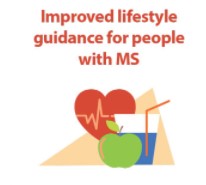
Of the 69 healthcare professionals who completed our survey, 74% thought that MS Brain Health has provided useful information for people with MS on the impact of lifestyle choices. Notably, in the Czech Republic, our brain-healthy lifestyle recommendations are part of newly updated standards for diagnostics and treatment of MS.
For further information about the survey results and examples of how some groups have promoted a brain-healthy lifestyle for people with MS, see the slide summary on Our impact page and some of the success stories from local MS groups:
- MS Australia election campaign
- Norwegian MS Competence Centre
- MS Society, UK, quit smoking campaign.
Do you have an encouraging story about your efforts to promote the MS Brain Health recommendations? Do contact us if you would like to share your experience with the MS community.
MS learnings from the COVID-19 pandemic
Has the service that healthcare professionals now provide or the care you receive as a person with MS improved or worsened owing to COVID-19? What effect has ‘telemedicine’ had on the patient‒doctor relationship, and what changes will the future hold?
A recent webinar, Shining a light on MS learnings from the COVID-19 pandemic, asked people with MS and healthcare professionals to exchange views.
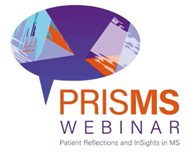
Chaired by Dr Aaron Boster and patient advocate Trishna Bharadia, the PRISMS webinar examined some of the issues around remote consultations. To access the webinar on demand and view the presentations, click on this link. You can also follow PRISMS on Facebook and Twitter.
Among the sources of reliable information mentioned by the presenters, MS Brain Health was recommended as a ‘go to’ resource for information about living a brain-healthy life.
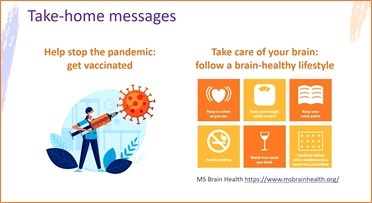
Should people with MS take supplementary vitamin D?
When Brain health: time matters in multiple sclerosis was published, in 2015, there was no clear consensus on the role of vitamin D supplementation in MS management; further research has increased the body of evidence. A short update on our website explores the current thinking about vitamin D supplementation: the rationale for its use in MS, some issues around clinical trials, and the recommended dosages for different populations.
Social determinants of health – impact on MS outcomes
Socioeconomic factors that contribute to health-related quality of life and to health outcomes are sometimes referred to as ‘social determinants’ of health. Health inequities exist globally owing to unequal access to wealth, education and health facilities. The consensus standards developed from the MS Brain Health recommendations represent a set of globally agreed goals that should provide a means to reduce some of these inequalities.
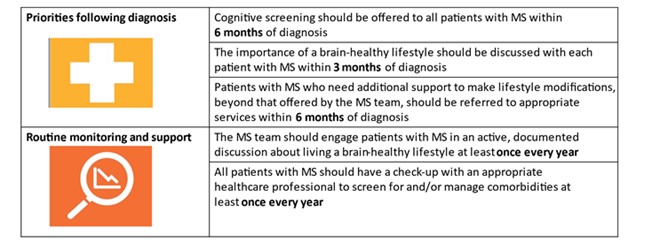
Read the evidence summary by our Steering Committee members Stanca Potra and Gavin Giovannoni here.
You can follow us on Twitter @MSBrainHealth and on LinkedIn to keep up with the latest news.
Thank you for your continuing support!

Gavin Giovannoni, MD
Professor of Neurology and Chair of the MS Brain Health Steering Committee
On behalf of the MS Brain Health Steering Committee: Gavin Giovannoni, Peer Baneke, Helmut Butzkueven, Tyler Campbell, Jelena Drulovic, Jodi Haartsen, Jeremy Hobart, Stanca Potra, Mitzi Williams and Tjalf Ziemssen
